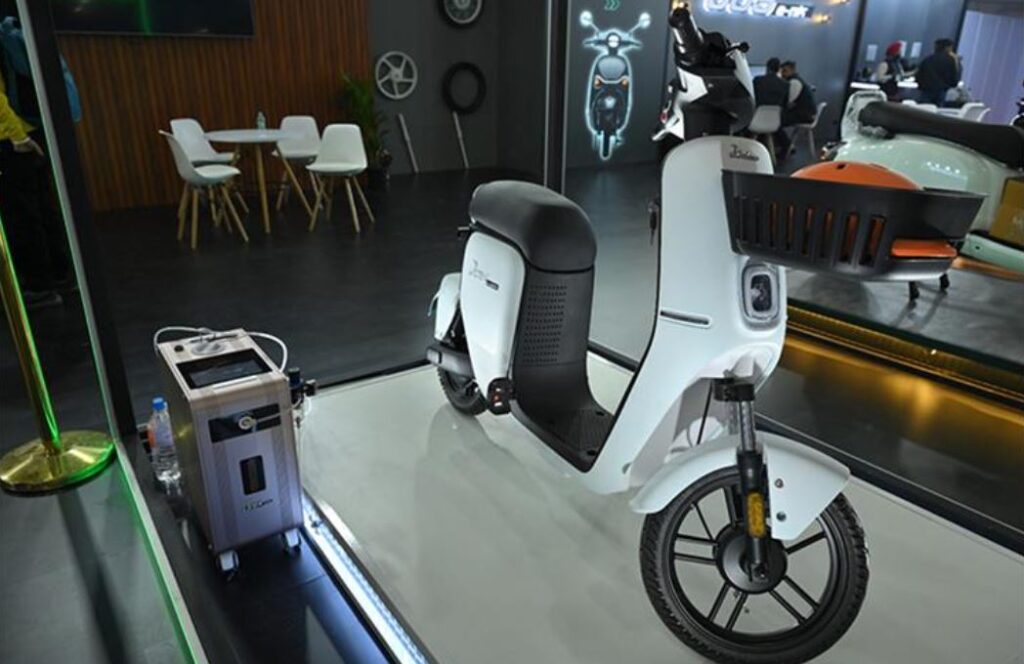
Wardwizard Innovations & Mobility, a manufacturer of electric two-wheelers under the brand ‘Joy e-bike’ and three-wheelers under the brand ‘Joy e-rik’ in India, is expanding its product offerings while exploring next-generation technology.
The proposed hydrogen scooter has a range of 50 kilometres and will use an external electrolyser to charge the on-board fuel cell, which powers the motor. “The electrolyser charges the tank, and the tank is plugged into the compartment at the given compartment,” Sablok remarked. “That tank is powering the hydrogen fuel cell, which gives the battery power and then it runs the motor,” he added while elaborating on the technology.
Meanwhile, Wardwizard Innovations is actively expanding its electric vehicle portfolio across both high-speed and low-speed segments. However, Sablok emphasises the continued need for government support to drive mass EV adoption across India. Battery technology advancements, robust charging infrastructure, and affordability remain key challenges. While the industry is progressing, cost competition from established players like China persists. “So, I think the industry would still need the fiscal support that the government has been extending in terms of PLI, FAME, or Advanced Chemistry Cell policy or policy for the electric charging network for two, three more years,” he adds.
Wardwizard Innovations’ current manufacturing facility in Baroda, Gujarat, is spread on 8–10 acres of land and has an annual capacity of around 4 lakh units. Furthermore, the company plans to set up a new 100-acre EV ancillary cluster in Gujarat to manufacture components and the focus will be on consolidating operations and maximising output from the Gujarat facilities for now.
Recently, Wardwizard Innovations also inaugurated its new assembly line facility for electric two-wheelers in Deoghar, Jharkhand. The new facility will complement the currently operating factory in Vadodara, Gujarat, and is spread across an area of 15,000 sq. ft. The company will commence the assembly of its high- and low-speed electric two-wheelers at the new facility, with an initial annual target of more than 20,000 units to cater to the growing demand in the Eastern and Northern regions of India, as well as the export market in Nepal.
“Our focus for capacity building remains on maximising utilisation of our existing facility before considering expansion to new locations,” Sablok continued.
While immediate expansion plans are domestic, the company sees potential in exports to markets such as Sri Lanka, Bangladesh, Nepal, and Africa, as they are transitioning away from fossil fuels. Inquiries are also pouring in from Chile, Brazil, Colombia, Europe, and the Middle East, with the UAE’s recent deployment of electric taxis being a strong indicator of regional market adoption.
